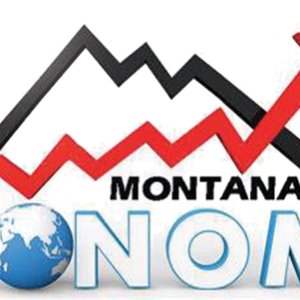A majority of Logan Health primary care providers voted recently to unionize. Hospital workers including physicians and nurse practitioners voted to join the Union of American Physicians and Dentists. Providers behind the unionization efforts listed understaffing as their biggest concern, which ties into appointment availability, patient wait times and the ability to provide primary care services.
Located inside the Montana Athletic Club in Bigfork, the new health and wellness center, The Elysian Institute, is open to people who are looking to manage pain or discomfort. The center opened in July 2025. A membership in the Montana Athletic Club is not a requirement to access services offered by the Elysian Institute. The center offers one-of treatments and tiered memberships.
Since the sale of marijuana was made legal for adult-use in Montana in 2022, retailers have sold more than $1 billion in marijuana. The Montana Department of Revenue reported that last year sales were $327 million. As adult use has increased, medical use, which has been legal since 2004, has declined, having declined from 40% to about 10%. Over the four year period, Montana collected $217 million in marijuana tax revenue. About $207 million tax were collected from adult-use sales, and less than $10 million for medical use.
Later in 2026 the Gallatin Ice arena will enter the second phase of its $8.1 million expansion. Plans include seating to accommodate up to 1,500 spectators, a restaurant and bar, an executive suite and new locker rooms. Expectations are to draw people to Bozeman as a destination ice rink.
Montana education board has approved charter schools in Stevensville and Livingston. The two new public charter schools are named the Stevensville Health Sciences Academy and Park Pathways School in Livingston.
The C.M. Russell Museum announced that tickets are on sale. The annual Western Art Auction and cultural weekend will take place March 19–21, in Great Falls. The event continues the museum’s tradition of honoring the legacy of Charles M. Russell while offering new opportunities for collectors, visitors, and the public to engage with the art, history, and stories of the American West. The 2026 Russell will feature works by Charles M. Russell alongside pieces by artists who captured the landscapes, communities, and spirit of the West including contemporary artists such as Troy Collins, Luke Frazier, Jennifer Johnson, Carol Hagen, and Greg Kelsey. The weekend will also include educational programming. Proceeds from The Russell directly support the C.M. Russell Museum and its mission’
Jana Olson was elected by acclamation as mayor of Richey during the November 2025 general election after filing as the only eligible candidate.
Most sites in Montana hit all-time, or near-record amounts of precipitation in December when an atmospheric river released a deluge across the state. According to the U.S. Department of Agriculture’s Natural Resources Conservation Service, which released its January Water Supply Outlook Report recently. Of the 96 SNOTEL stations in Montana, 70 recorded their highest or second-highest December precipitation on record. The precipitation helped improve drought conditions across the state.
In Missoula, the Florence Building downtown is being remodeled into what will be the Sumac Cafe, a fast-casual Mediterranean breakfast and lunch restaurant.
Data center developers, Sabey, wants an extension on the data center land deal with Butte-Silver Bow County. The company hoping to build the data center in Butte’s business park wants more time to consider its potential operations before closing on the land deal.
BW Blacksmith Coffee & Grill is opening a new restaurant and coffee shop in Anaconda in space previously occupied by Donivan’s Restaurant.
In mid January a real estate listing for The Great Northern Bar and Grill, Whitefish, was released. Three days later, the property was under contract. In its early years, the bar occupied a smaller space on the north side of Second Street. In the 1950s, the bar was moved to its current location on Central Avenue. In the late 1980s, an adjacent business and empty lot were purchased, and remodeled into the band room, pool room and beer garden. The Northern, with all its assets and Whitefish memorabilia, is listed for $12 million.
Also on Central Avenue in Whitefish The Remington Bar and Casino is also listed for sale. The Remington’s history dates back even longer than The Northern’s. The bar and casino was established in 1908, three years after the city of Whitefish was incorporated. The Remington’s current location traces back to Hori’s Cafe and Hotel established in 1905. The Remington’s iconic bar, kitchen, venue, casino and the licenses to boot are listed for sale at $13.5 million.
Logan Health President Kevin Abel is stepping down from his position, effective March 1. Abel was named co-CEO of Logan Health and Billings Clinic in March 2024, sharing the title with Clint Seger. Based in Billings, Seger was named the organization’s sole CEO in November 2025.
During the Terry Town Council’s meeting in January Mayor Rolane Christofferson and Keifer Lewis, Prairie County sheriff, relayed information from recent conversations with the Montana Department of Transportation about changing the method of parking along Spring Street in Terry. The main thruway between the east and west edges of town will look different in the coming months as a shift in parking from angle parking to parallel parking proceeds.
The Montana Board of Public Education denied a charter school application for the Miles City school district in January. The proposal would have seen a charter school established in the Jefferson Elementary School Building in an effort to address declining enrollment and student engagement within the district.
The City of Williston Economic Development Department has announced that Target Corporation has selected Williston Square as the site for a more than 134,000 square foot store. It will be the first in western North Dakota and sixth in the state. The store will be located at 3022 Dakota Drive inside Williston Square.
Nearly 4,500 acres of working agricultural land and wildlife habitat in Montana’s Rocky Mountain Front region will be protected from new development after The Vital Ground Foundation partnered with the Fellows family and the U.S. Department of Agriculture’s Natural Resources Conservation Service to complete a conservation easement for the Fellows Ranch outside Choteau. According to a news release the ranch includes more than five miles of frontage along the Teton River as well as two miles along a tributary, Spring Creek. these lush bottomlands provide important range for numerous wildlife species, including grizzly bears that follow waterways to move between mountain habitat in the nearby Bob Marshall Wilderness and the lower-elevation grasslands of the Rocky Mountain Front.
Visitors to Lewistown spend almost $42 million each year, according to a 2023 study by the Tourism Business Improvement District. Many of those visitors are here to attend one of the area’s community events, most of which are created by various groups of volunteers donating time and energy.
A recently released report shows that downtown Missoula saw 20 new business openings and more than $22 million in commercial investment in 2025.
The Whitefish Liquor Store has moved several blocks south to 1010 Baker Ave. This is the former location of Big Mountain Glass. The new liquor store has 13,000 square feet of space. It also includes two floors, two entrances and 30 parking spots.



